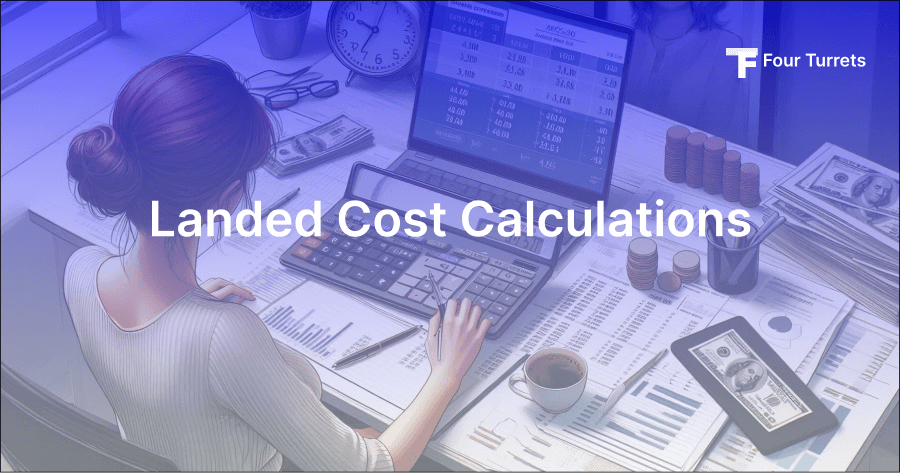When you make a trade decision to deliver an output from your business, you have to consider various things, including what time the product would take to get build, what would be the estimated time spent on production, what would be the landed costs of the raw materials and so on. Understanding the landed cost for imported goods is crucial for businesses engaged in international trade. This comprehensive calculation includes all expenses associated with getting products from the supplier to the final destination. Beyond the purchase price, it encompasses shipping fees, customs duties, taxes, insurance, and other logistical costs. Accurately determining the landed cost ensures businesses can set appropriate pricing, maintain profit margins, and avoid unexpected expenses.
By mastering this aspect of importation, companies can enhance their financial planning, streamline operations, and achieve a competitive edge in the global market.
Why Do You Need to Calculate The Landed Cost of Goods
As a business owner, you must be clear on your landed costs in advance. This will help you make the right decisions for greater profitability and optimized revenue generation. If you are planning to import goods and sell them in your local market, this clarity will help you measure the right landed costs for the products you want to sell and affix the selling price to make satisfactory profits.
Knowing the landed costs of your imported goods in advance will help make the right call to invest capital in the goods and desired market efforts you might need to invest in.
If you end up avoiding this step, you might end up paying unforeseen charges and making product selling unviable for your business.
Landed Cost Formula
Here is the simplest formula to calculate the landed cost of goods in your business:
Landed cost of Imported Goods = Unit cost of the product + Shipping & insurance + Customs duty + Risk involved + Overhead + Taxes from authority
Let’s understand the components that affect the total landed cost of imported goods.
Unit Cost of the product
unit costs, also known as product costs are costs incurred in manufacturing or acquiring the products from manufacturers or suppliers.
Costs per unit include the price of raw materials used to make the product and other components attached to it, such as the manufacturing process, labor costs, and market demand.
Shipping & Insurance
Shipping and insurance also make their way to calculate the landed costs for your goods. The cost of goods sold also determines the premium you pay for the insurance. Thus, to calculate landed costs of goods, international shipping tariffs, and logistic insurance are also important.
Customs Duty
The majority of the ports around the world charge processing fees to handle your goods and logistics. Depending on the freight cost, the total cost of customs clearance will be levied on your goods.
Risk Involved
As you get the insurance to secure the goods you import and export, there is always non-tangible risk involved when your cargo is in transit. Thus, to add that bottom line in your calculations, risk cost is also added here.
Overhead Costs
From the salaries you pay to your employees, the commission you would pay to a third-party inspection agency to manage your goods, or the payment processing fees you will end up paying apart from your regular tariff goes into overhead costs.
Taxes From Local Authority
When you are doing the landed cost calculation, make sure to calculate the taxes and other duties that might incur on your shipment from local authorities as well. Many times, you might end up paying local taxes on the basic value of the goods. So, putting these costs together helps you make the calculation realistic.
So, this is how you can find the landed cost per unit and the cost associated with managing your goods to make a profit. To make your business profitable, go with a precision landed price comparison and grow your business.







